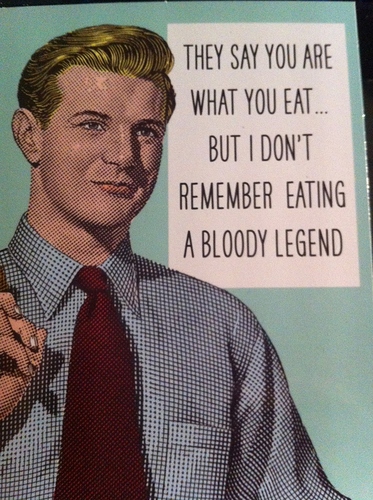You are Mr Science to me 
Random thoughts and question about hunger
are you type 1?
or what factor is hitting this insulin trouble you have maybe being a type 2? not sure where you are coming from cause I don’t know you and medical at all so? just a question for ya
I forgot to add to my earlier post that research on the relationship between hunger and energy expenditure has shown that the energy intake of people eating ad libitum does not usually match their energy expenditure for that day, but that over any given seven- or eight-day period, the match is to a striking degree of precision.
The lesson I take from that is that we should eat when we are hungry, and not eat when we are not hungry, and our body will sort itself out.
Decrease In Metabolic Rate
As per Michael, a decrease in caloric intake, even on a Keto Diet, lead to a decrease in your Metabolic Rate.
Increasing Your Metabolic Rate
Again, per Michael, the key to increasing your metabolism is to slowly increase you calorie intake.
Calorie In, Calories Out
"Eating more saturated fats and eliminating PUFAs as much as possible will help does little to minimize any weight gain or offset metabolic slowdown.
Kenny Croxdale
On the contrary, there is evidence suggesting that PUFA’s are part of the cause of our endemic metabolic dysfunction. The mitochondrial damage and systemic inflammation caused by excessive PUFA intake are possibly even worse than the mitochondrial damage and systemic inflammation caused by excessive sugar/carb intake.
I get it but what we eat is still key on all this.
all donuts all day or protein/fat/lc/be wary of our body allergies to plants etc. happening on a personal level.
I hold more to ‘we are what we eat’ vs. what was wrote…
but I AM SURE you are chatting an all in healthy lc/keto menu here but just saying tho
and you are right.
All in great protein/fat/lc will sort itself out for sure if one approaches this from the start.
If one comes in ‘manipulating/tweaks/fasting thru real hunger’ and more to lose a lb then all bets are off on long term survival with their health.
We’ve been discussing the ROS theory, BAT, mitochondrial uncoupling and related stuff in multiple other topics recently. One of my takeaways thus far is that sat fats, and especially 16 chain and longer, work towards boosting metabolic rate while PUFAs end up in WAT storage. Thus, if you eat more sat fats and reduce intake of PUFAs one should reasonably expect an increase in metabolic rate that offsets to some degree the potential gain in weight/fat from the plus energy balance of simply eating more food overall. It does matter what you eat, not just how much you eat. Thus my recommendation to eat more sat fat and less PUFA fats.
https://www.mostly-fat.com/ketotic-blog/2018/04/ketosis-without-starvation-human/
Thermodynamics and Metabolic Advantage of Weight Loss Diets
ABSTRACT
Published reports show that low carbohydrate weight loss diets provide a metabolic advantage, a greater weight loss per calorie consumed compared to isocaloric high carbohydrate diets. These reports have not been refuted but rather largely ignored, presumably because of the apparent violation of the laws of thermodynamics (“a calorie is a calorie”). In this review, we show that there is no such violation of thermodynamic laws. Energy utilization of different diets depends on the chemical pathway taken and a metabolic analysis of the efficiency of different pathways reveals large differences. Likewise, thermogenesis produced by diets of different macronutrient composition varies widely. We present a plausible mechanism that depends on the inefficiency of metabolic cycles and, in particular, protein turnover. A low carbohydrate diet makes demands on protein turnover for gluconeogenesis. From a theoretical point of view, energy balance between two diets is to be expected only if the subjects have the same final physiologic state, and only if all of the changes contributing to the energy, heat, work and chemical effects are known. Most diet experiments do not conform to this ideal. There is no theoretical contradiction in metabolic advantage and no theoretical barrier to accepting reports describing this effect.
ABSTRACT
The aim of this review was to evaluate data regarding potential thermodynamic mechanisms for increased rates of weight loss in subjects consuming diets high in protein and/or low in carbohydrate. Studies that compared weight loss and energy expenditure in adults consuming diets high in protein and/or low in carbohydrate with those in adults consuming diets low in fat were reviewed. In addition, studies that measured the metabolizable energy of proteins, fats, and carbohydrates were reviewed. Diets high in protein and/or low in carbohydrate produced an ≈2.5-kg greater weight loss after 12 wk of treatment. Neither macronutrient-specific differences in the availability of dietary energy nor changes in energy expenditure could explain these differences in weight loss. Thermodynamics dictate that a calorie is a calorie regardless of the macronutrient composition of the diet. Further research on differences in the composition of weight loss and on the influence of satiety on compliance with energy-restricted diets is needed to explain the observed increase in weight loss with diets high in protein and/or low in carbohydrate.
Abstract
…In summary, we propose that, in isocaloric diets of different macronutrient composition, there is variable flux of stored TAG controlled by the kinetic effects of insulin and other hormones. Because the fatty acid-TAG cycle never comes to equilibrium, net gain or loss is possible. The greater weight loss on carbohydrate restricted diets, popularly referred to as metabolic advantage can thus be understood in terms of the principles of nonequilibrium thermodynamics and is a consequence of the dynamic nature of bioenergetics where it is important to consider kinetic as well as thermodynamic variables.
Note, TAG: triacylglycerol (triglycerides)
Or worse, they are incorporated into cell membranes, where they cause random problems.
Or, as Dr. Phinney says, “It’s not that we are what we eat, but that we are what our body does with what we eat.”
I get that but a monster plate of donuts only vs. good meat and good lc veg…I don’t care what one says here, the second trumps the first  Nutrition level of the food is key. Kinda this statement of his, while I get it, sucks tho LOL
Nutrition level of the food is key. Kinda this statement of his, while I get it, sucks tho LOL
I ate very well. I didn’t starve myself at all. I love to cook and I make really yummy meals and eat until I’m full. I haven’t counted a calorie this entire time. I ate until almost full, stopped, waited 10 minutes and then if I was hungry, I ate more. I only watched my carbs. I fat fortified my food and enjoyed my bacon without restraint. That is why this hunger is so odd for me. I eat happily without concern during my 1 meal a day and it’s worked for 125 lbs. Now, that I’m at my goal, so to speak, the game has changed and my hunger has increased and I don’t know why.
So, one issue with bacon (and chickens):
I infrequently have bacon because of this. And before I read this, I stopped eating bacon, as there was no “off” switch for me with bacon.
This is so interesting that I just started another Topic dedicated to it:
Here is their summary:
“[Germ-free] mice must consume 10–30% more food to maintain the same body weight as conventional controls. Despite this increased food intake, germ-free mice are leaner with a ~40% decrease in the size of their epididymal fat pads. They have a similar decrease in liver glycogen levels. [Germ-free] mice also have lower blood glucose and insulin levels and are resistant to obesity induced by a high-fat diet.” — from Donohoe-2011
The authors view this as evidence of detrimental metabolic inefficiency. They also note differences in metabolic workings of the mitochondria in the colon cells of the mice that they believe account for the inefficiency. Therefore they construct an experiment to discover whether feeding butyrate to the colon cells of the germ-free mice would restore them to working the way conventional colon cells work (which it does).
To us, on the other hand, the germ-free mouse sounds like the healthier mouse!
If you have followed the debates about low-carb diets conferring a metabolic advantage (demonstrated by their superior performance as weight loss diets [2], [3]) then the above description of germ-free mice should sound familiar. Compared to low-fat dieters, ketogenic dieters tend to be leaner (i.e. have a higher ratio of muscle to body fat), and have lower insulin and blood glucose levels. This can happen despite similar caloric intake. Their liver glycogen levels are also lower; ketogenesis may depend on low glycogen levels [4].
However, the germ-free mice are not ketogenic, presumably because they are consuming regular, glucose-plentiful diets. In fact they are less ketogenic than the conventional mice, as measured by beta-hydroxybutyrate in the blood.
So what is the cause of the similarity in metabolism between germ-free mice and ketogenic humans?
I know PUFA’s have some issues.
However, I haven’t seen any information that regarding this or that “Eating more saturated fats and eliminating PUFAs as much as possible will help minimize any weight gain due to metabolic slowdown.”
Can your and Michael provide some research on that?
Thanks,
Kenny Croxdale
Just a note to point out that most mammals do not enter ketosis readily. It is usually a late-starvation response. Human beings are outliers, in being able to enter ketosis so easily.
I’m not saying that Dr. Knobbe has everything exactly right, but that he presents food for a lot of thought.




